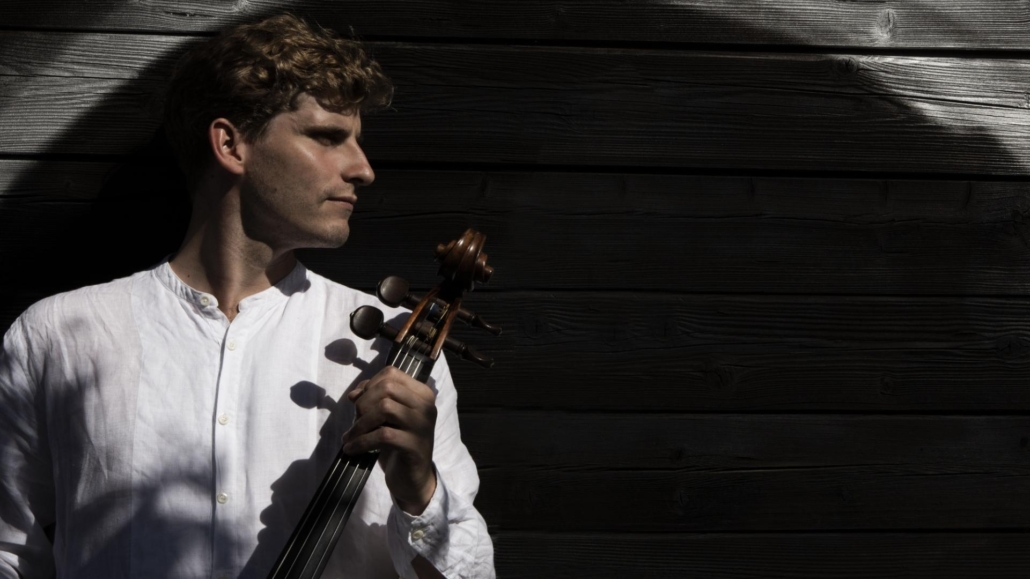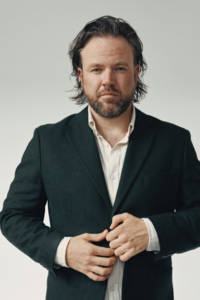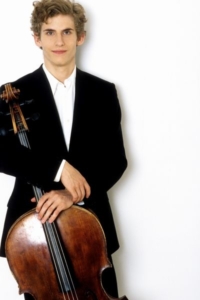Scotland has been frequently celebrated in song, not least by its national poet Robbie Burns, whose catalogue includes approximately 400 ballads and broadsides, many still widely sung. Perhaps because the country has historically been a land of shepherds, fisherfolk, and structural engineers, it has been less well represented in symphonic form, however. There are a few shining examples—including Alexander Campbell Mackenzie’s Pibroch, a bagpipe-inspired suite for violin and orchestra written in 1889 and thus contemporaneous with the similarly nationalistic output of Antonín Dvořák and Edvard Grieg—but they are not widely known, especially compared to Felix Mendelssohn’s Symphony No. 3 in A minor, the “Scottish” symphony.
Perhaps it’s emblematic of Presbyterian self-effacement, then, that the most celebrated orchestral treatment of Scottish culture and scenery was written by a German tourist who spent a mere three weeks visiting the highlands and islands.
It was not entirely a happy visit. Mendelssohn’s diary entry for August 10, 1829, is succinct: “Horrible seasickness. Staffa.” Fortunately his travel companion, the diplomat and poet Karl Klingemann—a man of greater literary gifts and stronger stomach—related a vivid picture of the wilderness that would inspire Mendelssohn’s Hebrides Overture almost as soon as the composer was safely landed on dry land.
“A greener rush of waves surely never rushed into a stranger cavern—its many pillars making it look like the inside of an immense organ, black and resounding, absolutely without purpose, and quite alone, the wide grey sea within and without,” Klingemann wrote.
During the next several years, Mendelssohn would have the opportunity to recast himself as a noble adventurer in search of the sublime—and sublime the Symphony No. 3 most certainly is, even if Mendelssohn himself commands centre stage as often as the rugged North Atlantic coast or the tumultuous Cairngorms. “It’s like he’s out walking through ruins and storms in full evening dress, trying to catch a bit of wind in his hair,” says Victoria Symphony music director Christian Kluxen. “It’s personal and emotional, but never messy—just deeply poetic.”
The scent of heroism wafts through all three of the works on this program, occasionally with undertones of the self-mocking or at least of the self-aware. For Kluxen, Ludwig van Beethoven’s Egmont Overture is the most overtly heroic of his works, even more so than his famous “Eroica” symphony. It’s useful to remember that Egmont started life as incidental music for Johann Wolfgang von Goethe’s play of the same name, which valorises Lamoral, Count of Egmont. A wealthy Dutch nobleman and devout Catholic, he nonetheless fought against the imposition of the Inquisition in the Netherlands, and was ultimately executed for heresy under the Spanish king, Philip II.
Perhaps both Goethe and Beethoven were making the point that a principled conservative could be a hero to progressive humanists; if so, it’s a message that resonates today.
In the Egmont Overture, Kluxen says, “You hear the struggle, the downfall, the resistance, the final push for freedom. It’s direct, but not simplistic. And I feel it provides us with the right transitional energy—without losing substance—to go into Sergei Prokofiev’s Sinfonia Concertante.
“That idea—the hero—actually ties really well into the Sinfonia Concertante,” he continues, “Because in that piece, the solo cellist becomes the hero. Not in a glorious, triumphant way, but in a very human way. The cello goes through everything—pain, joy, absurdity, tenderness, wit, love, even death. It’s such a wild and personal journey. Of course, the piece is insanely difficult technically—but that’s not really the point. What’s much harder is making it feel human while it being over-humanly difficult to play. You can’t fake your way through it. You have to be a full human being to play this work properly.
“There are also moments—especially in the outer movements—where it feels like Prokofiev is poking fun at the drama itself. Almost winking at the audience, as if to say: ‘Yes, here’s the big Romantic solo moment… And, yes, I know it’s over the top.’ To me, the piece is almost like commedia dell’arte in music. You get all these extreme characters and emotional masks—grandeur, absurdity, pathos, slapstick—constantly shifting, colliding, playing off each other. It’s theatrical, a bit grotesque at times, but always incredibly alive. It plays with the idea of concert tradition, with this whole ‘hero on stage’ narrative—but at the same time, it completely delivers on the emotional and dramatic level. That combination of irony and depth is part of what makes the piece so unique.”
Let’s not forget that, ever since the dawn of recorded history, every hero worthy of the name has had a friend, mentor, or enabler. Gilgamesh had his Enkidu; Henry VIII had his Thomas Cromwell; Batman had his Robin. There may well be something similar going on between Kluxen and tonight’s cellist-hero, Andreas Brantelid.
“He’s one of the musicians I admire most—not just for his playing, but for who he is,” Kluxen says. “Over the years we’ve become close friends, and since we both live in Copenhagen, we try to meet whenever we can—have a glass of wine, cook, talk. A little fun fact is that I was actually conducting when he had his very first performance with an orchestra—it was the Rococo Variations by Tchaikovsky, and he must have been 15 or so. Already back then he was totally in command of the instrument.”
It’s not only as a showcase for his friend that explains why the conductoir has decided to end tonight’s concert with the Sinfonia Concertante. “It has so much substance—structurally, emotionally, dramatically—that it can absolutely carry the weight of a program finale,” he explains. “It’s a full symphonic journey, with the cello as its soul.
“Andreas and I have actually done this piece together a few times before, which is pretty rare,” he adds. “Most conductor–cellist pairings only survive one round of this monster before deciding never to speak again. But for us, the ambition has always been to refine it, not kill each other over it.”
That’s a laudable goal—and we fervently hope that the two Danes will survive to bring the world much more music for many years to come.
Notes by Alex Varty



 Christian Kluxen, conductor
Christian Kluxen, conductor Andreas Brantelid, cello
Andreas Brantelid, cello